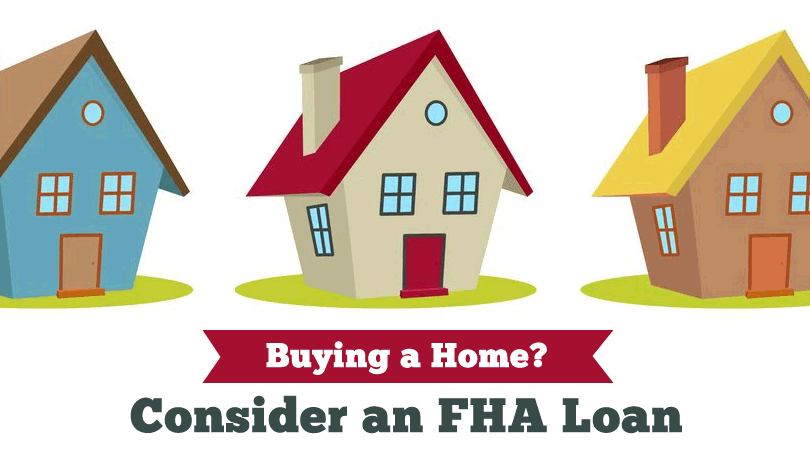Optimize Your Buying Power with FHA Home Loans
Home Mortgage Debunked: An In-depth Examination of Loan Programs Tailored to Fit Your Economic Situation and Goals
Browsing the landscape of home mortgage often presents a daunting difficulty, compounded by a myriad of programs made to fulfill diverse economic needs. Comprehending the distinctions in between adjustable-rate and fixed-rate home mortgages, along with government-backed options like FHA and VA lendings, is vital for making notified choices. Each program uses special benefits customized to details situations, yet the complexity of qualification demands and rate of interest can cover quality. As we explore these details, one need to consider exactly how to align these choices with individual economic objectives to unlock one of the most useful path to homeownership.
Understanding Mortgage Essentials
Although lots of individuals aspire to homeownership, recognizing the basics of home mortgage is vital to making informed economic decisions. A home funding, additionally understood as a mortgage, is an economic item that permits people to obtain cash to buy property. The consumer is called for to settle the funding amount, together with passion, over a collection period, commonly ranging from 15 to three decades.
Trick elements of mortgage consist of the principal, which is the quantity obtained, and the passion price, which establishes the price of borrowing. Lenders evaluate numerous factors, such as credit report earnings, score, and debt-to-income proportion, to identify eligibility and car loan terms. In addition, consumers ought to understand the relevance of deposits, which can affect financing approval and influence monthly payments.
Recognizing lending amortization is also essential; this describes the steady reduction of the financing equilibrium with time through normal repayments. By understanding these basic concepts, possible homeowners can navigate the home loan landscape better, ultimately resulting in much better monetary outcomes and an even more successful home-buying experience.
Sorts Of Home Mortgage Loans
When discovering the landscape of home financing, recognizing the various kinds of home loan is crucial for making an educated option. Home loan can mainly be categorized right into fixed-rate and adjustable-rate mortgages (ARMs) Fixed-rate mortgages provide a regular rate of interest and regular monthly payment over the car loan's term, giving security, usually for 15 to 30 years. This predictability allures to house owners that like budgeting assurance.
Alternatively, ARMs have rate of interest that fluctuate based upon market conditions, typically starting less than fixed-rate options. These rates can readjust periodically, possibly enhancing month-to-month repayments over time. Consumers that prepare for refinancing or relocating before substantial rate changes might discover ARMs useful.
Furthermore, government-backed financings, such as FHA, VA, and USDA car loans, satisfy certain demographics and offer various benefits like reduced deposits and versatile credit demands. Traditional finances, not guaranteed by the federal government, frequently call for higher credit report however can give affordable prices for solvent customers - FHA home loans. Comprehending these loan types allows possible house owners to pick the home mortgage that aligns finest with their financial scenario and long-lasting objectives
Trick Eligibility Demands
Navigating the eligibility needs for a home loan is an essential step in the home-buying procedure. Understanding these needs can significantly streamline your application and enhance your opportunities of authorization.
The primary variables influencing eligibility include credit report, income stability, debt-to-income (DTI) ratio, work history, and down settlement amount. The majority of lending institutions need a minimum credit rating of 620 for conventional fundings, while government-backed lendings might have more tolerant standards. A secure income, showed through constant work or self-employment records, is essential for loan providers to assess your capability to pay off the finance.
The DTI ratio, which compares your month-to-month debt payments to your gross month-to-month revenue, commonly must not exceed 43%, though some loan providers may allow higher proportions in specific scenarios. In addition, the dimension of your deposit can influence eligibility; while a larger down repayment might improve your opportunities, certain programs provide choices for minimal down settlements.
Last but not least, lenders will assess your overall economic account, consisting of readily available possessions and obligations, to ensure you are financially qualified of maintaining homeownership. Familiarizing yourself with these essential qualification needs will certainly encourage you in the mortgage application journey.

Rate Of Interest Rates Explained
Comprehending the details of rate of interest is essential to making notified decisions in the mortgage procedure. Interest rates represent the price of borrowing cash and are shared as a percentage of the financing quantity. They can significantly affect your regular monthly mortgage settlements and the overall price of your home funding.
Rate of interest can be categorized right into repaired and flexible prices. Repaired prices continue to be continuous throughout the lending term, providing predictability in month-to-month payments. Alternatively, adjustable rates fluctuate based upon market problems, which can lead to reduced first settlements however may boost over time.
A number of variables influence passion prices, including the debtor's debt score, car loan term, and dominating economic problems. Lenders analyze these elements to establish the risk related to providing to a particular debtor. Usually, a greater credit report can cause lower here rate of interest rates, while this contact form longer funding terms might cause higher prices.
In addition, more comprehensive financial indicators, such as rising cost of living and financial plan, play a critical role in forming rate of interest. Understanding these aspects allows borrowers to far better navigate the financing landscape and choose options that line up with their economic objectives.
Selecting the Right Finance Program
Selecting the ideal lending program is vital for consumers intending to maximize their financing choices. With numerous lending types readily available, including fixed-rate, adjustable-rate, FHA, and VA car loans, recognizing the nuances of each can substantially influence long-term monetary wellness.
Customers need to initially assess their monetary circumstance, consisting of credit report, revenue stability, and debt-to-income ratios (FHA home loans). A fixed-rate mortgage provides predictability with constant monthly settlements, suitable for those planning to remain in their homes lasting. On the other hand, variable-rate mortgages may give reduced first prices, attracting buyers that anticipate moving within a few years
Furthermore, government-backed car loans such as FHA and VA alternatives can be valuable for new buyers or professionals, as they frequently require reduced deposits and have more forgiving credit history needs.

Conclusion
In verdict, browsing the complexities of home finances calls for an extensive understanding of different mortgage programs and their distinct features. By evaluating individual financial situations and objectives, possible consumers can make informed decisions regarding the most ideal lending options.
Fixed-rate home mortgages use a constant rate of interest rate and monthly settlement over the financing's term, offering stability, frequently for 15 to 30 years.Additionally, government-backed lendings, such as FHA, VA, and USDA loans, provide to certain demographics and use various advantages like reduced down payments and adaptable credit score needs. A lot of loan providers require home a minimal credit history rating of 620 for traditional lendings, while government-backed loans might have much more forgiving criteria. Repaired rates continue to be constant throughout the funding term, offering predictability in monthly repayments. Generally, a higher credit scores score can lead to reduced interest rates, while longer loan terms may result in higher prices.